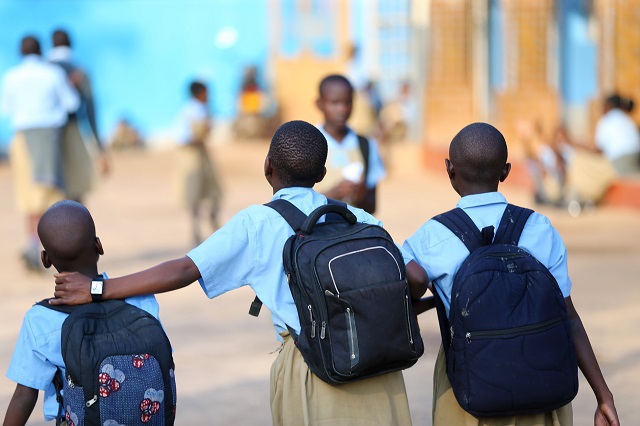
Nairobi, Kenya | XINHUA | The UN children’s fund UNICEF on Tuesday called on governments across Eastern and Southern Africa to urgently and safely reopen schools, as the costs of continued school closures escalate across the region.
According to UNICEF, only 13 out of 21 countries in Eastern and Southern Africa have returned children to classrooms with an additional four having set return dates.
“We see lost learning, rising violence, rising child labor, forced child marriages, teen pregnancies and diminished nutrition. A generation of children is at risk, and at the most critical time in our continent’s history,” Mohamed Malick Fall, regional director for UNICEF in Eastern and Southern Africa said in a statement issued in Nairobi.
“Seven months into the pandemic, we must be very clear about the gravity of this crisis: we are at risk of losing a generation,” Fall warned.
UNICEF said its call to safely reopen schools follows scientific evidence which shows children are not super-spreaders of COVID-19, and are the least affected by the pandemic in the region, with a mere 2.5 percent of COVID-19 cases attributed to children of school-going age between 5-18 years.
It said of nearly 65 million children remaining out of school in the Eastern and Southern Africa region, around one in two are not reached by any form of learning with millions of children continuing to miss what was their one nutritious meal of the day.
“We are at a time of unprecedented population growth. If this expanded workforce can receive quality learning at school, the potential for increased production could sustain an economic boom to drastically reduce poverty in Africa – where currently 70 percent of sub-Saharan Africa’s people live on less than 2 U.S. dollars a day,” said Fall.
According to UNICEF, safely reopening schools by the beginning of October is possible and will give scholars a full term and vastly reduce learning losses.
Fall said much effort was spent at the start of COVID-19 pandemic, reminding all of the dangers of the virus and necessary precautions.
“Things have evolved. We now know greater dangers for children lie by being outside the classroom. That message needs to be heard,” he added.
Most countries in Eastern and Southern Africa have seen the rationale of a phased return to schools, starting with exam classes in countries such as Botswana, Eritrea, Eswatini, Madagascar, Somalia, Zambia, and recently Malawi and Zimbabwe.
Bigger countries with larger COVID-19 caseloads and higher student populations, such as South Africa, have reopened schools for all grades since the end of August.
******
XINHUA
 The Independent Uganda: You get the Truth we Pay the Price
The Independent Uganda: You get the Truth we Pay the Price





